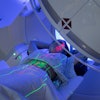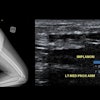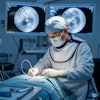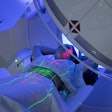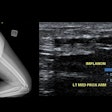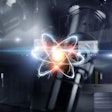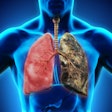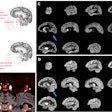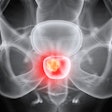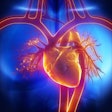
NEW YORK (Reuters Health), Jun 21 - Phrenic nerve injury is a rare complication of radiofrequency or ultrasound ablation of atrial fibrillation, the authors of a case series report, and most patients recover spontaneously.
Dr. Frederic Sacher, from the Universite Bordeaux II, Bordeaux-Pessac, France, and colleagues in the U.S., Australia, the U.K., and Portugal describe 18 patients with phrenic nerve injury, out of 3,755 patients who underwent catheter ablation of drug-refractory atrial fibrillation between 1997 and 2004, yielding a prevalence of 0.48%.
In nine patients, phrenic nerve injury was diagnosed during the procedure, often manifesting as dyspnea, cough, or hiccup. The remaining nine were diagnosed within the next three days, having symptoms that included dyspnea while lying down, chest pain, atelectasis, pleural effusion, or pulmonary infection. Two patients were asymptomatic and were diagnosed by routine chest x-ray.
Twelve patients (66%) recovered completely after a maximum of 12 months' follow-up, with diaphragmatic movement returning to normal with no hemidiaphragm elevation, according to the report in the June 20th issue of the Journal of the American College of Cardiology.
Three (17%) recovered partially after 18 months, as manifested by the absence of paradoxic diaphragmatic movement and a less elevated hemidiaphragm. Two of these three patients still had dyspnea and one was asymptomatic.
The other three patients (17%) remained symptomatic with shortness of breath between six and 96 months of follow-up, with continuing hemidiaphragmatic elevation and paradoxical movement during inspiration.
Procedure variables -- power, temperature, radiofrequency delivery time, or type of catheter -- were not associated with risk of phrenic nerve injury, the investigators note.
Dr. Sacher and his team observed that ablation in some structures -- "the inferoanterior part of the right pulmonary vein ostium (9 to 10 o'clock), the posteroseptal part of the superior vena cava, and the proximal left atrial appendage roof" -- were more likely to be associated with phrenic nerve injury "and warrants greater caution during ablation."
Physician vigilance is required to identify phrenic nerve injury during ablation, so that the procedure can be stopped immediately, thereby increasing the likelihood of rapid recovery of phrenic nerve function.
Last Updated: 2006-06-20 13:15:22 -0400 (Reuters Health)
J Am Coll Cardiol 2006;47;2498-2503.
Related Reading
Targeted angiography precludes unintentional embolization during TACE, May 28, 2006
Copyright © 2006 Reuters Limited. All rights reserved. Republication or redistribution of Reuters content, including by framing or similar means, is expressly prohibited without the prior written consent of Reuters. Reuters shall not be liable for any errors or delays in the content, or for any actions taken in reliance thereon. Reuters and the Reuters sphere logo are registered trademarks and trademarks of the Reuters group of companies around the world.

